The content of the article
Motherhood is not just care, love, patience and frequent diapers. This is a science that mothers are forced to learn as soon as possible. Young women immediately after childbirth should get acquainted with a huge amount of information - how to process the navel of a newborn, how to care for a baby - bathe, change a diaper, wear. In the simplest case, when a child is born absolutely healthy, the amount of information necessary for assimilation is simply amazing. A separate, very relevant and necessary problem is the nutrition of the mother, which breastfeeds the baby. In this article, we’ll talk about kefir - how the consumption of this product affects the condition of the child and mother, learn about the benefits and harms of kefir during breastfeeding, and also try to prepare a sour-milk treat on your own.
What should not be eaten while breastfeeding?
Modern doctors argue that there are no specific prohibitions on the consumption of certain products during breastfeeding. Scientists and pediatricians believe that the baby should gradually get acquainted with the different tastes and compositions of dishes through breast milk. However, adhere to certain rules is still worth it. Firstly, mothers are forbidden to eat foods that cause fermentation in the stomach. Among them, muffin, cabbage, legumes, carbonated drinks, etc. Indeed, one of the most common problems of the child in the first months of life is colic associated with the immaturity of the gastrointestinal tract. To aggravate the situation is not worth it, so as much as possible secure your diet. In this regard, kefir is acceptable, but only in small quantities. It is believed that whole milk is much more likely to cause flatulence, flatulence and bloating than dairy products.
Secondly, a young mother should exclude allergens from the diet. Among the general prohibitions are eggs, chocolate and sweets, red berries and fruits. Milk and dairy products can also cause an allergy called lactose intolerance. To understand whether a baby has such a diagnosis can be with the help of a doctor. As a rule, with lactose intolerance after consuming dairy products, the child develops a strong bloating, gas formation, the baby is capricious and cannot fall asleep. This happens due to the lack of enzymes in the baby’s stomach, which are necessary for the breakdown and processing of dairy products. If the child is diagnosed with this disorder, it is recommended that the baby be transferred to artificial lactose-free food, and there is no longer any talk about mother consuming kefir.
In addition, it is recommended that mom refuse to consume too aromatic and harsh foods - these are garlic, hot peppers and sauces, onions - they can change the taste of mother's milk. Also, mom should not drink alcohol and coffee - they have an exciting effect. You should strictly refrain from taking banned medications, because part of the active substance of the drug passes into milk. Fortunately, according to these criteria, kefir is absolutely safe, which means that it can be eaten by young mothers.
The benefits of kefir for breastfeeding
As we found out, kefir can be consumed during breastfeeding, but only if the baby is not allergic to dairy products. In the first month, kefir should be consumed with great care and in small portions, not more than 100 ml per day, carefully monitoring the reaction of the child's body. It is important to monitor whether his stool has changed, if gas production has increased, if the baby has become more capricious and tearful, or if the quality of his sleep has changed.All this may indicate fermentation processes in the intestines of crumbs. If there is no such reaction to kefir, drink it with pleasure. After all, it is not only tasty, but also very healthy.
- First of all, kefir improves digestion and protects against constipation. After all, after childbirth this is especially true, many women are faced with manifestations of hemorrhoids, which is aggravated due to hard stools.
- Sour-milk products help form the vaginal microflora, which is also very important in the postpartum period.
- Moderate consumption of kefir helps to establish digestion, timely emptying and avoid fermentation in the intestines. This affects the digestion of the baby, protects against colic and bloating.
- Calcium in kefir makes woman's milk more nutritious, oily and saturated. The kid eats up faster, stays full longer and gains weight better.
- Obstetricians and gynecologists recommend eating 100-150 ml of kefir per day in the first days after birth, dividing the entire volume into several doses. This contributes to the faster arrival of breast milk, colostrum becomes more nutritious.
In general, regular consumption of kefir is a valuable source of calcium, which is so necessary for women with lactation. After all, the colossal part of calcium goes into breast milk, as a result, young mothers who breastfeed begin to lose hair, crumble teeth and nails, the skin becomes dry and cracked, bones hurt, diseases of the musculoskeletal system aggravate. And even with a lack of calcium in breast milk, the baby has a risk of developing rickets, you have to additionally give him calcium and vitamin D to assimilate it. You can avoid all these problems if you regularly drink kefir with HB.
Which kefir is better to drink with breastfeeding?
Of course, it is best to drink homemade and natural kefir made by yourself. Unfortunately, most city dwellers do not have the opportunity to cook kefir on their own. In this case, try to buy today's kefir in small bundles in the store in order to replenish supplies of fresh food daily. Remember that one-day kefir is considered the safest - there is less alcohol in it, fermentation processes are at the initial stage, such kefir will only bring benefits. In no case should you drink kefir, which is more than 3-4 days, it can lead to problems with the intestines, both in you and in your baby.
If you have the opportunity to buy natural milk from farmers from the market, be sure to use it. Cooking kefir is not difficult. For this, milk should first be boiled thoroughly. When the milk begins to rise, turn down the heat and leave the milk on the fire for about half an hour. The liquid will turn out to be more oily, and kefir will become saturated and tasty. After half an hour of languishing over a fire, milk should be covered and let it brew and cool to a warm state. It is very important to choose the temperature at which milk should be fermented. If the milk turns out to be too cold, the sourdough will not take, if it is too hot, the beneficial bacteria will simply die. Fluid temperature should be around 40 degrees. There is no thermometer - it does not matter, dip a clean finger in milk - the liquid should be moderately hot, comfortable.
And kefir when breastfeeding is a tasty and healthy snack, without all kinds of cookies and sweets. This means that a woman after childbirth can quickly lose weight, improve her figure and return to good shape in a few months. Drink kefir, be healthy and beautiful!
Video: what and how much to drink while breastfeeding

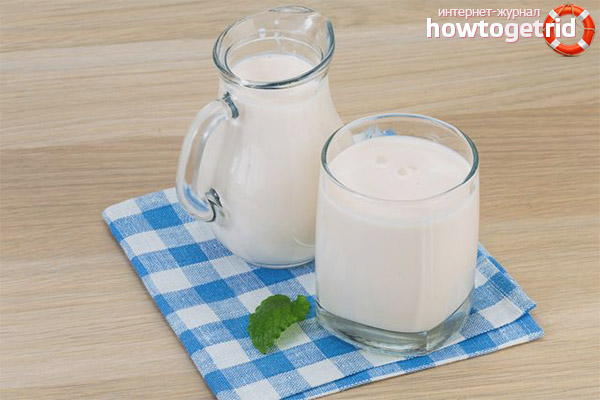
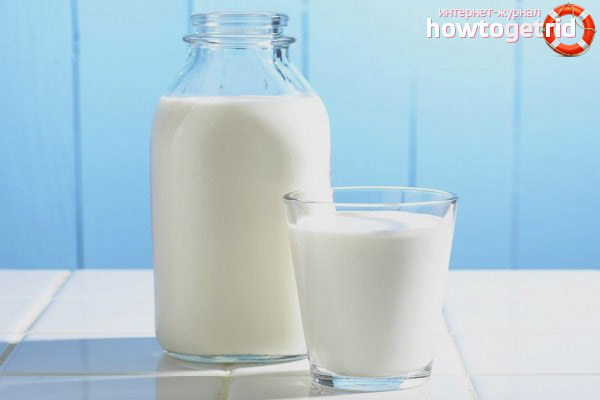
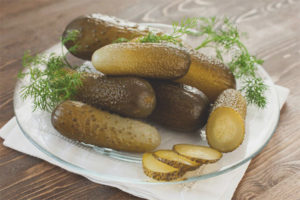
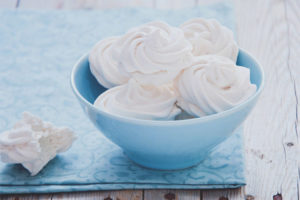


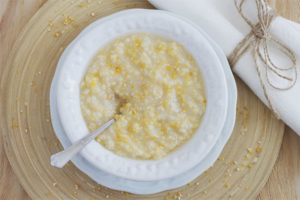
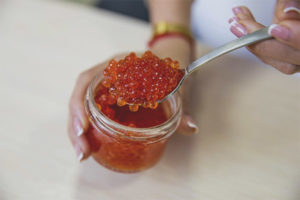
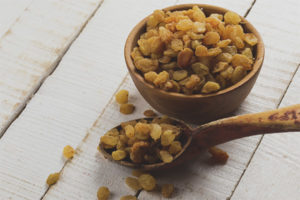
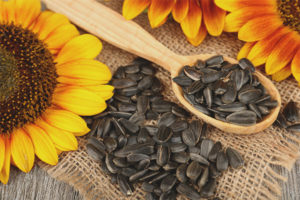
Submit